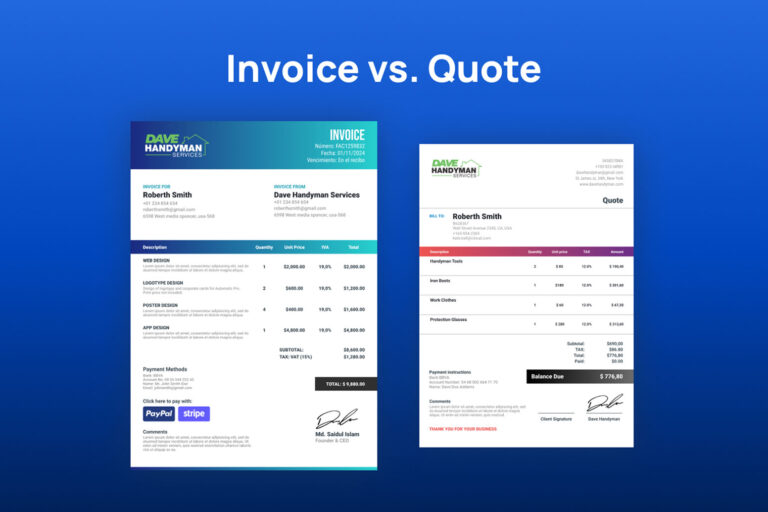HVAC Technician Salary Guide in 2025 in the United States

This guide provides a detailed overview of HVAC Technicians salaries, average earnings per state, factors influencing pay, regional variations, and actionable tips for increasing income in the HVAC industry in 2024.
Heating, ventilation, air conditioning and refrigeration systems (HVACR) are crucial for maintaining comfortable indoor environments across various settings.
The demand for skilled HVAC Technicians and contractors continues to rise, making it vital for aspiring professionals and employers to understand current salary trends.
In fact, the BLS (Bureau of Labor Statistics) has reported a 9% average growth rate in jobs from now to 2033, 5% higher than most professions.
Let’s dive into it!
HVAC Salary Guide: How Much do HVAC Technicians Make in 2024?
The HVAC industry is experiencing robust growth, with technicians playing pivotal roles in installing, maintaining, and repairing complex systems.
According to the Bureau of Labor Statistics, the average annual salary for HVAC technicians in the U.S. is approximately $57,300, though this figure can vary significantly based on factors like location, experience, and specialization.
Hourly wages typically range from $20 to $30, with potential increases in regions with higher demand or for those possessing advanced certifications.
RELATED ARTICLE: How To Start An HVAC Business? Step-by-Step Guide

Key Factors Influencing HVAC Techs Salaries
Several elements play a role in determining how much HVAC technicians earn. Let’s explore these in detail:
1. Location and Cost of Living
Where you work has a significant impact on your salary. Technicians in states with higher living costs or greater demand for HVAC services often earn more.
For instance, some of the highest paying states are:
- California: Average salary of $62,500/year
- Massachusetts: Average salary of $60,000/year
- Alaska: Average salary of $59,800/year
Conversely, states like Mississippi and Arkansas offer average annual salaries around $40,000.
However, the lower cost of living in these areas can help offset the difference.
2. Experience and Certification
Your experience level is a major factor in determining your pay:
- Entry-level technicians: Salaries ranging from $30,000 to $40,000 annually.
- Senior Level HVAC Technicians (5+ years): Salaries for a senior technician can exceed $70,000 per year.
Certifications like EPA 608 and NATE further boost earning potential.
Specializing in areas such as repairing air conditioning and refrigeration systems, energy-efficient systems, installing and maintaining heating and cooling systems, or renewable energy can significantly increase your market value and job growth.
3. Industry and Sector
The type of industry or sector you work in also affects pay:
- Commercial or industrial settings: Typically pay more than residential roles.
- Unionized positions: Offer higher wages, comprehensive benefits, and greater job security.

Salary Trends: Roles and Regional Variations
Top-Paying Regions
HVAC Businesses in some metropolitan areas consistently offer higher salaries for HVAC professionals.
Apart from California, Massachusetts, and Alaska, cities like San Francisco, New York City, and Seattle offer wages above the national average.
However, these areas also come with higher living expenses.
Salary Progression by Role
The HVAC industry offers a clear career progression. Here’s the wide range of typical salaries based on roles:
- Entry-Level Technicians: $30,000–$40,000 annually
- Mid-Level Technicians: $50,000–$65,000 annually
- Senior Technicians/Specialists: $70,000–$80,000 annually
- HVAC Engineers: $80,000–$100,000 annually
Specializing in renewable energy systems or smart HVAC technologies can further boost your income potential.
RELATED ARTICLE: How To Get An HVAC License in the U.S.?
Beyond Base Pay: Total Compensation
While salary is a significant factor, HVAC technicians often receive additional benefits, such as:
- Health Insurance: Coverage for medical, dental, and vision needs.
- Retirement Plans: Employers frequently offer 401(k) contributions.
- Bonuses and Incentives: Performance-based bonuses or commission structures.
- Paid Time Off (PTO): Including vacation days, sick leave, and holidays.
Some employers also provide perks like tool allowances, training programs, and reimbursement for certifications, enhancing the total compensation package.
RELATED ARTICLE: The Complete Guide to HVAC Business Insurance for U.S. Contractors
Emerging Trends Shaping HVAC Careers in 2024
The HVAC industry is rapidly evolving, with exciting trends influencing career opportunities:
1. Green Energy and Sustainability
As energy efficiency becomes a top priority, technicians trained in renewable energy systems like geothermal or solar-powered HVAC units are in high demand. These specializations often come with higher pay.
2. Smart HVAC Systems
IoT-enabled HVAC systems are becoming the standard in modern homes and offices. Technicians who specialize in installing and maintaining these smart systems can position themselves as valuable experts in a niche market.
3. Rising Demand for Skilled Labor
As experienced technicians retire and fewer workers enter skilled trades, demand for qualified HVAC professionals is projected to outpace supply. This labor shortage could lead to higher salaries, especially for technicians with advanced training.

Strategies to Maximize Your HVAC Salary
Looking to boost your income in the HVAC industry? Here are actionable tips:
- Earn Certifications: Obtain credentials like EPA 608 or NATE and consider specializing in high-demand areas like refrigeration or renewable energy.
- Relocate Strategically: Research high-paying states or cities with strong demand for HVAC services.
- Gain Diverse Experience: Work with a variety of systems and settings to build a strong resume. Employers value well-rounded experience.
- Embrace Technology: Stay updated on emerging technologies like smart HVAC systems and energy-efficient units.
- Network in the Industry: Join organizations like ASHRAE and attend trade expos to connect with industry professionals and discover new opportunities.
Leveraging Technology for Career Advancement
Managing your HVAC career or business can be overwhelming. Using tools like Invoice Fly can streamline your operations, helping you:
- Create professional invoices.
- Manage appointments and schedules efficiently.
- Track payments and stay on top of finances.
By simplifying administrative tasks, these tools let you focus on delivering best-in-the-industry HVAC services.
The HVAC Career Path in 2024 and Beyond
HVAC technicians play an essential role in maintaining modern comfort, and their salaries reflect the value they provide.
With an average salary of $50,000 and growing opportunities in green energy and smart technologies, 2024 is shaping up to be a promising year for HVAC professionals.
Whether you’re starting your career or looking to advance, staying informed about salary trends, earning certifications, and leveraging technology can help you succeed.
Ready to streamline your operations and focus on growth?
Download Invoice Fly today!

Ellie McKenna is a creative copywriter born in United Kingdom.
Although was born in Northern Ireland, she possesses extensive knowledge about SaaS and Mobile Apps products in the United States, as she has been in-house writer, agency writer and freelance for American companies.
Working at Vista has allowed her to create content that focus on the user search intent, creating great informative articles for contractors and small businesses in the U.S.



